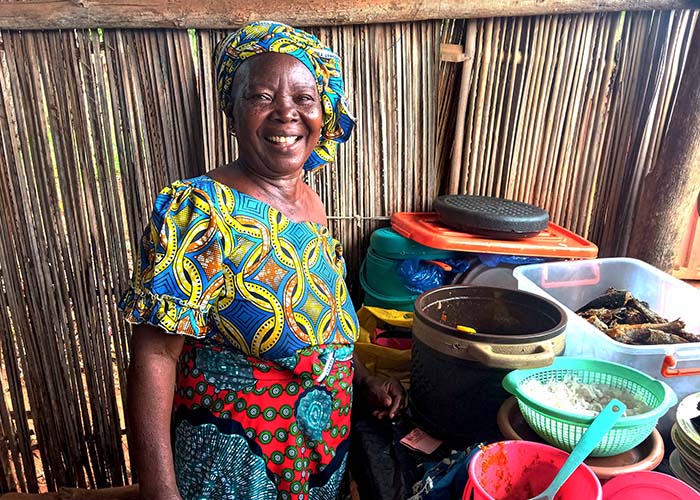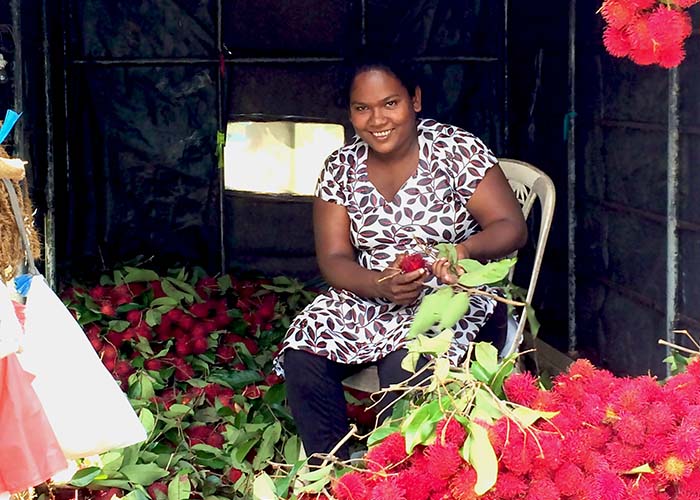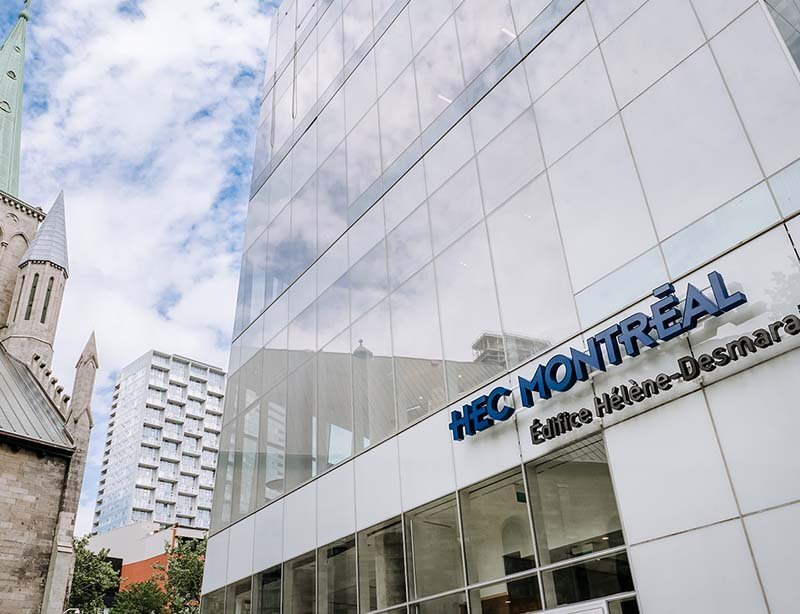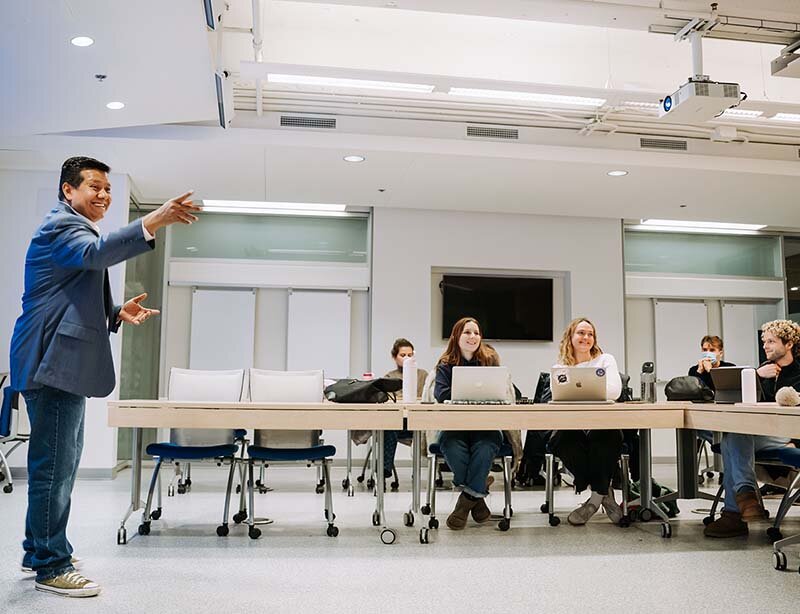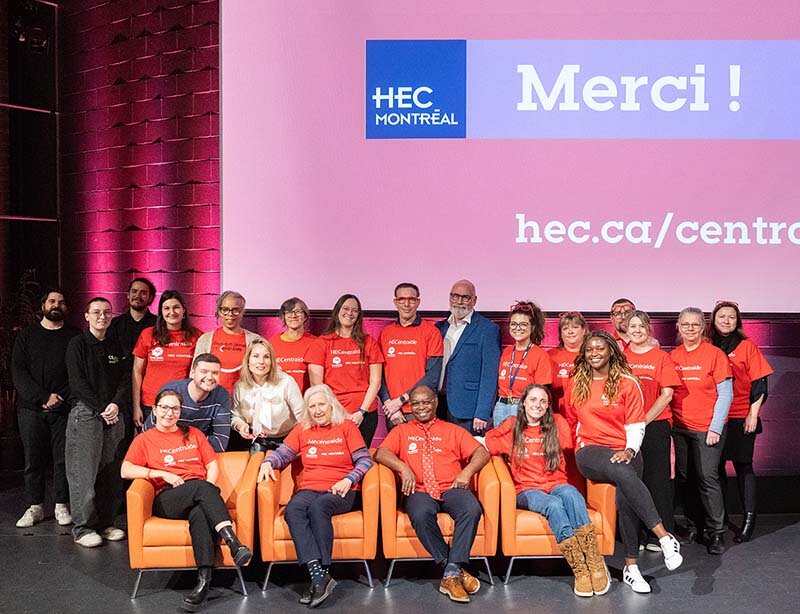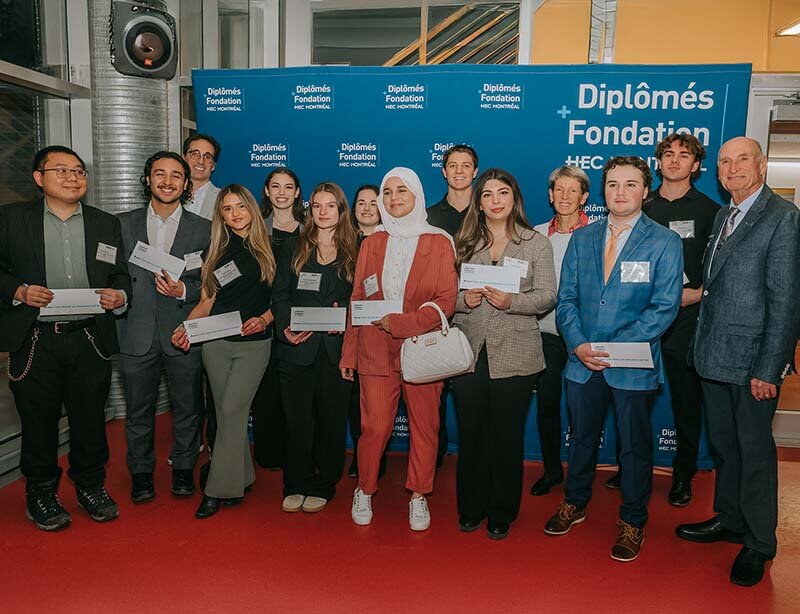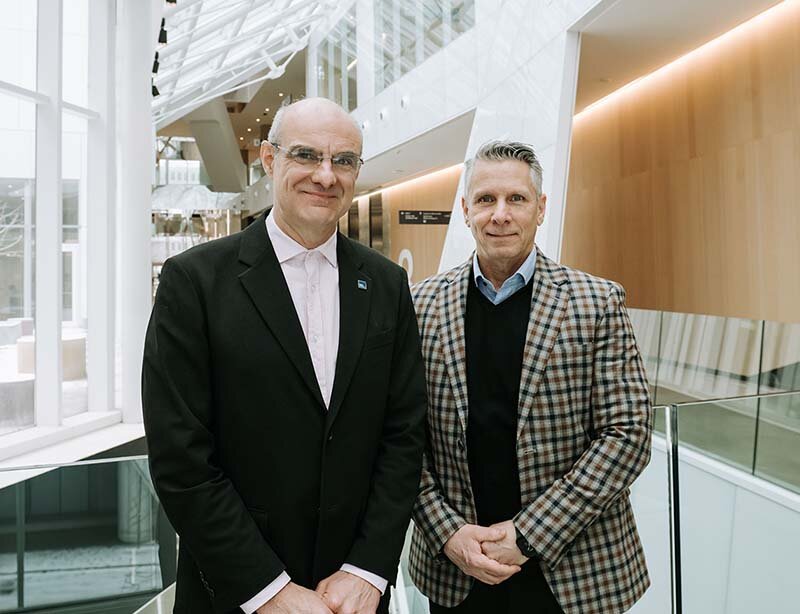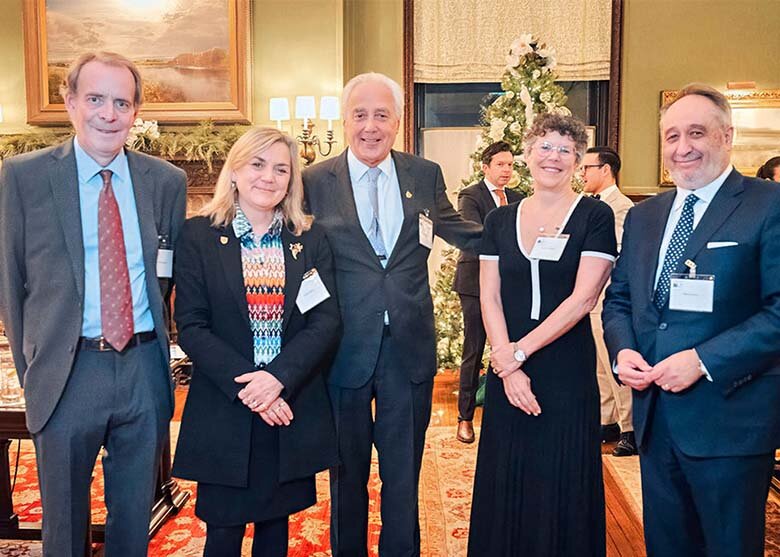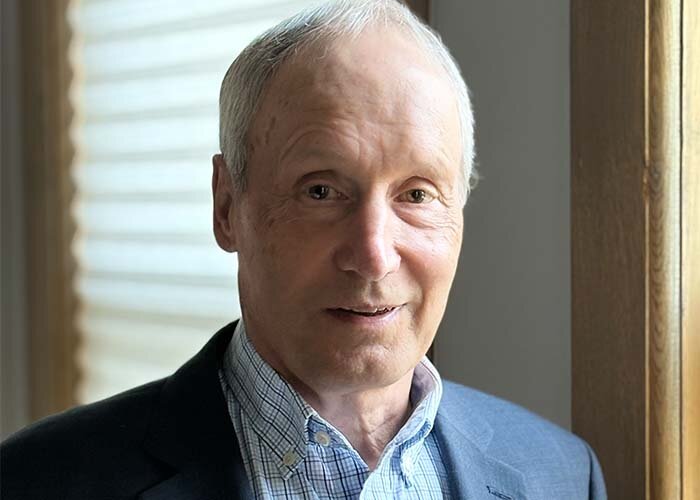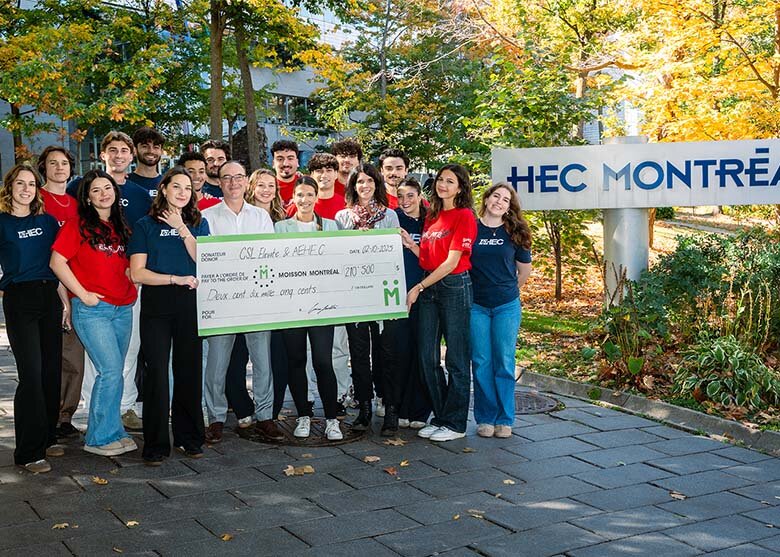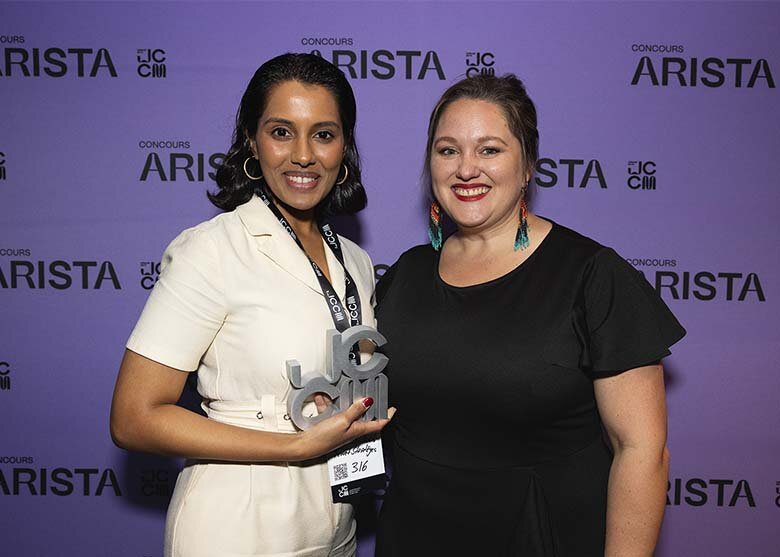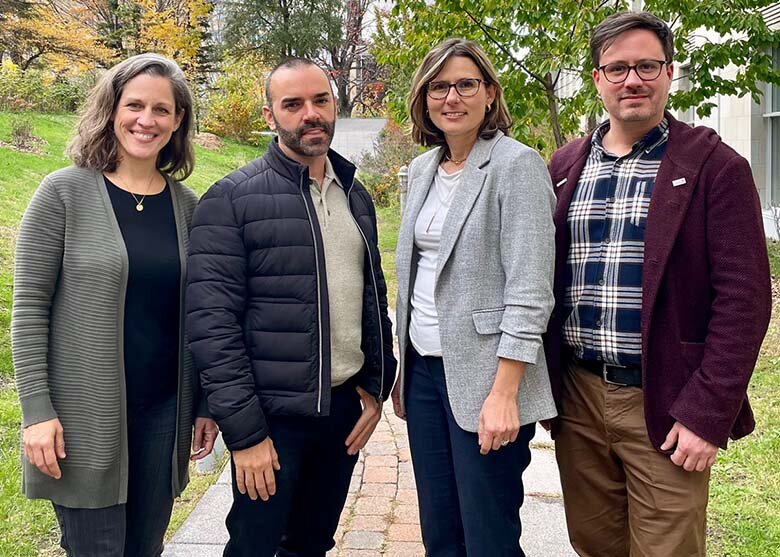Campus news
A partnership to strengthen climate resilience and social inclusion
November 12, 2025
HEC Montréal and Desjardins International Development (DID) unveil a framework partnership agreement for the 2025–2030 period, which marks a new step in their long-standing collaboration. This strategic partnership focuses on international development projects that promote climate resilience and social inclusion, notably in the Global South.
The agreement was signed on November 7, 2025, in the presence of Gerardo Almaguer, President and Chief Executive Officer of DID, and Luciano Barin-Cruz, Director of the IDEOS Center for Social Impact, Professor in the Department of Management, and Academic Director, Executive Education HEC Montréal.
This announcement comes at a time when the global context is ripe for concerted action, with Luciano Barin-Cruz participating in the United Nations Climate Change Conference (COP30) held in Belém, Brazil. His presence at COP30 demonstrates HEC Montréal's commitment to actively contributing to debates and solutions related to sustainable transition.
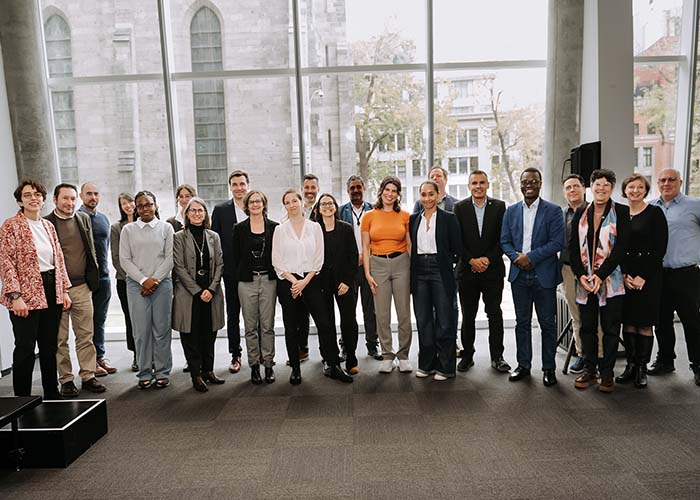
Signing ceremony for the framework partnership agreement at HEC Montréal.
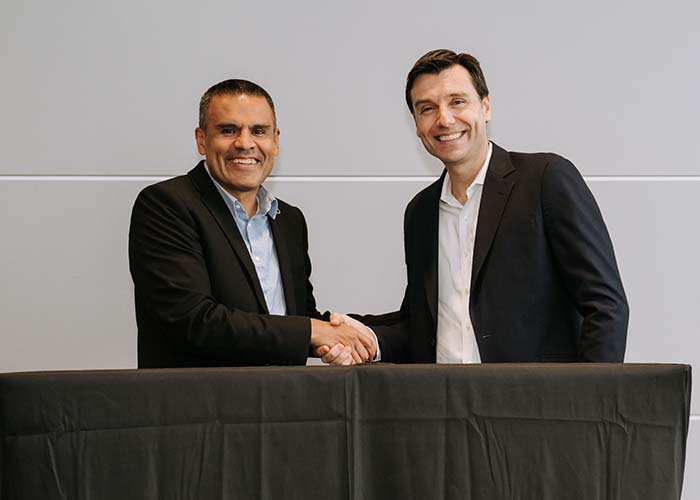
Gerardo Amalguer and Luciano Barin-Cruz.
“Supporting the economic development of vulnerable people in the Global South also strengthens our economy and innovation. Whether it's the implementation of sustainable practices that have a positive impact on global supply chains, on which Quebec depends, the exchange of know-how in the countries concerned that our students can benefit from, or inclusive models that can be adapted by local businesses, our actions have a multiplier effect at the local and international levels.”
A strong collaboration spanning 15 years of joint initiatives
For more than 15 years, HEC Montréal and DID have been collaborating on projects aimed at boosting the innovation and development capacity of micro and small businesses, promoting social inclusion, particularly for women and young people, while contributing to climate resilience. The SEED project, which supports sustainable entrepreneurship in several communities in the Global South, perfectly illustrates this synergy.
Complementary expertise in the service of sustainable development
This partnership is based on the complementary expertise of the two institutions. Indeed, DID leverages its expertise in inclusive finance and impact investing, acquired over 55 years of international action. For its part, HEC Montréal draws on its mission to train responsible leaders, as well as its research and transfer capabilities in the areas of sustainable transition, entrepreneurship, innovation, and social impact.
The projects supported under this agreement benefit from technical and financial support in various sectors such as renewable energy and agri-food. They involve several countries, including Senegal, Colombia, Haiti, Sri Lanka, Tunisia, Benin, and Morocco.
A co-development approach
A collaborative approach is fundamental to this agreement: projects are designed along with local communities and are based on their specific needs. This method ensures a greater relevance of the various interventions as well as sustainable ownership of the solutions implemented.
Joint actions will include:
- seeking opportunities and financial partnerships for transformative interventions;
- developing and disseminating training, methodological tools, and case studies.
Contributing to positioning Canada as a key player in responsible trade
By strengthening local capacities and promoting inclusive innovation, our partnership contributes to positioning Canada as a key player in responsible trade with countries in the Global South. It is part of a dynamic of shared and mutually beneficial development, where social inclusion, climate resilience, and economic prosperity go hand in hand.
The signing of this partnership also demonstrates the shared commitment of HEC Montréal and DID to actively contribute to the United Nations Sustainable Development Goals (SDGs), particularly in the areas of climate change, gender equality, and inclusive economic growth.
Learn more
HEC Montréal’s commitment to sustainable transition
